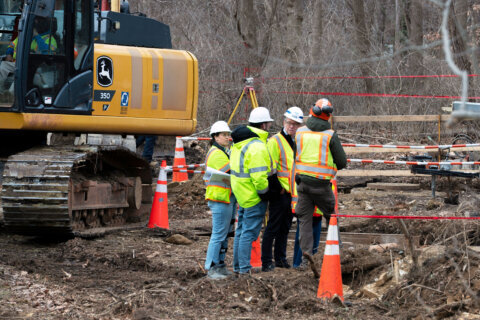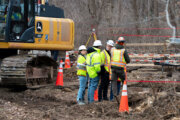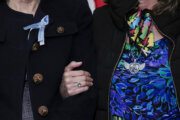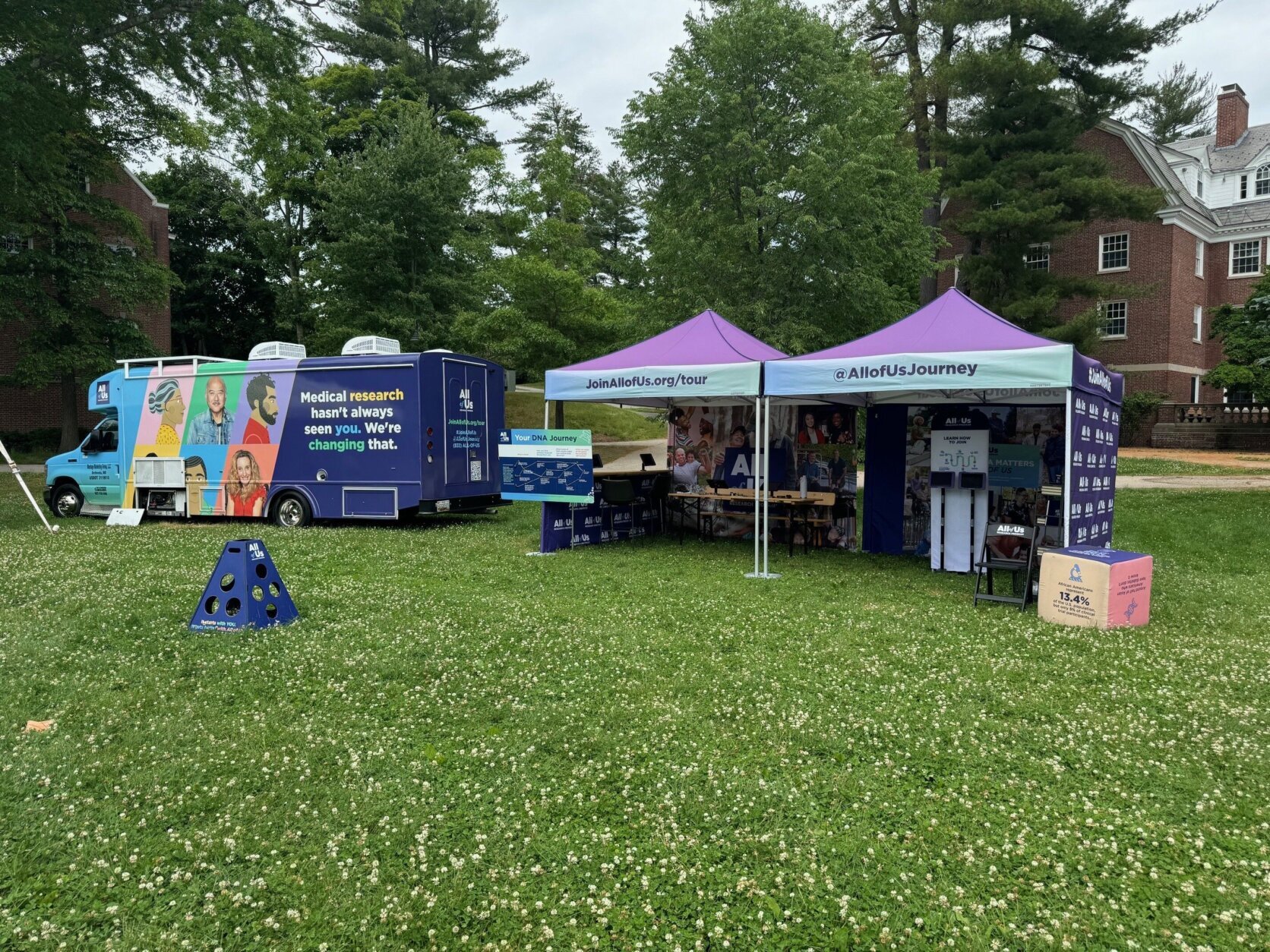
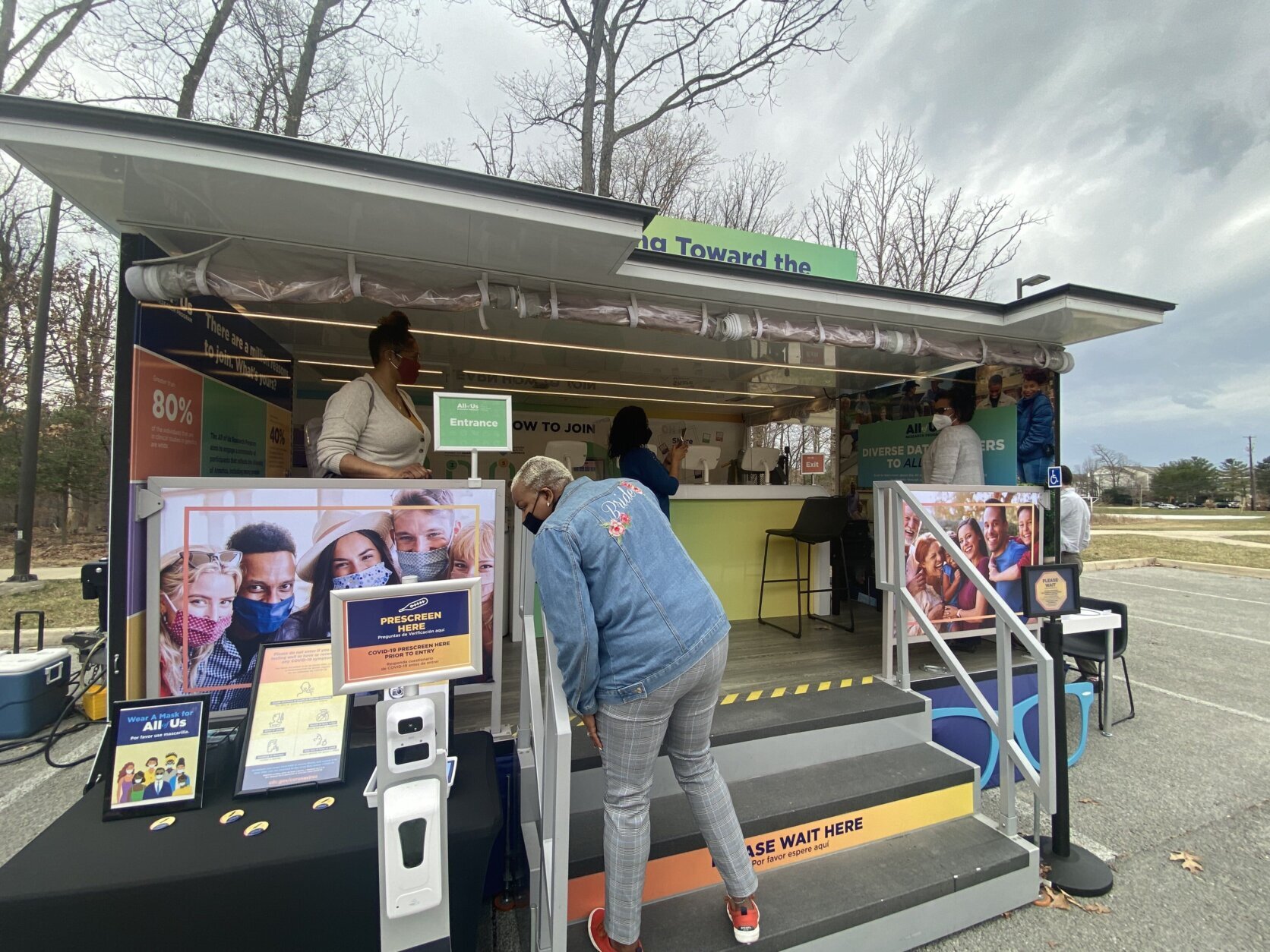
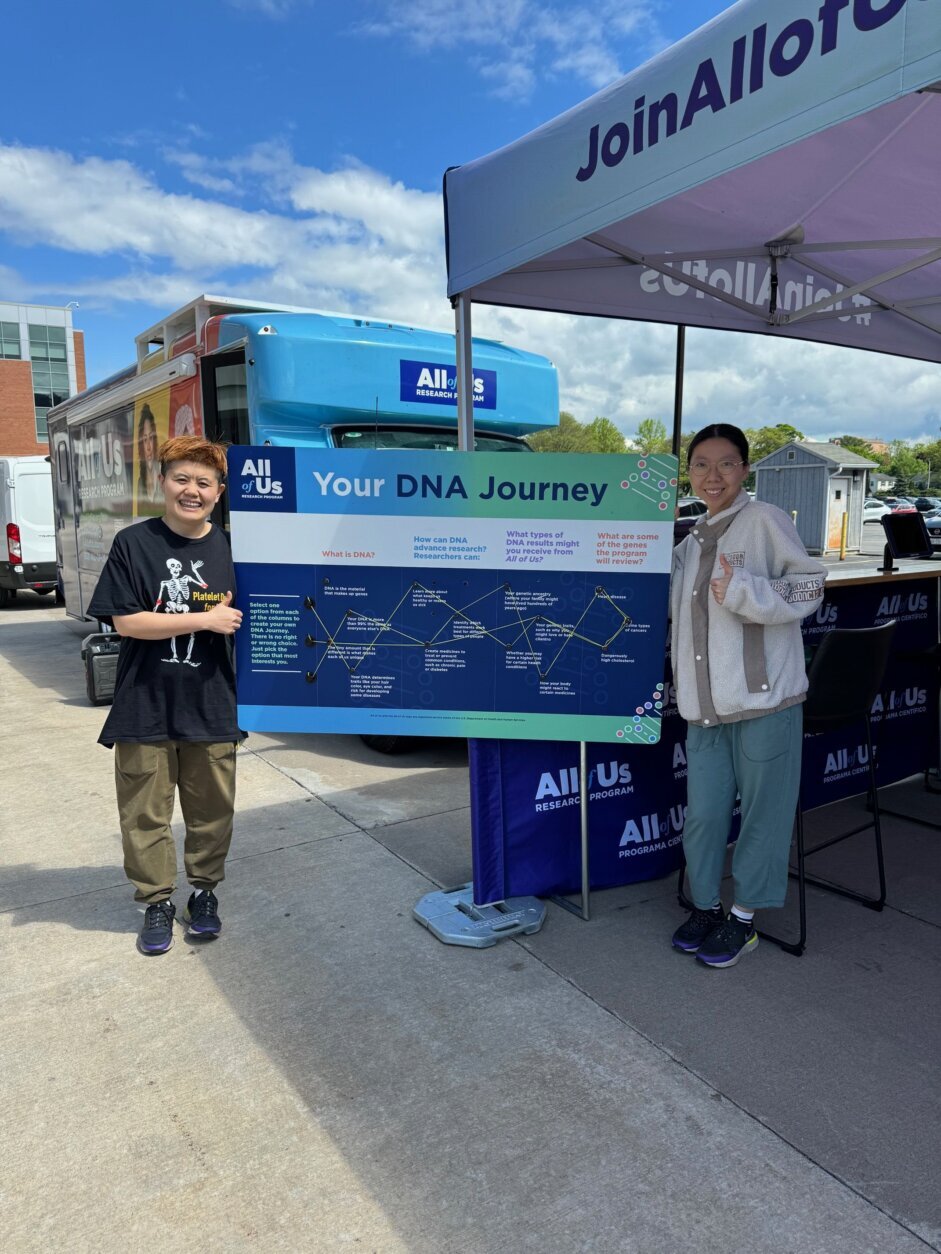
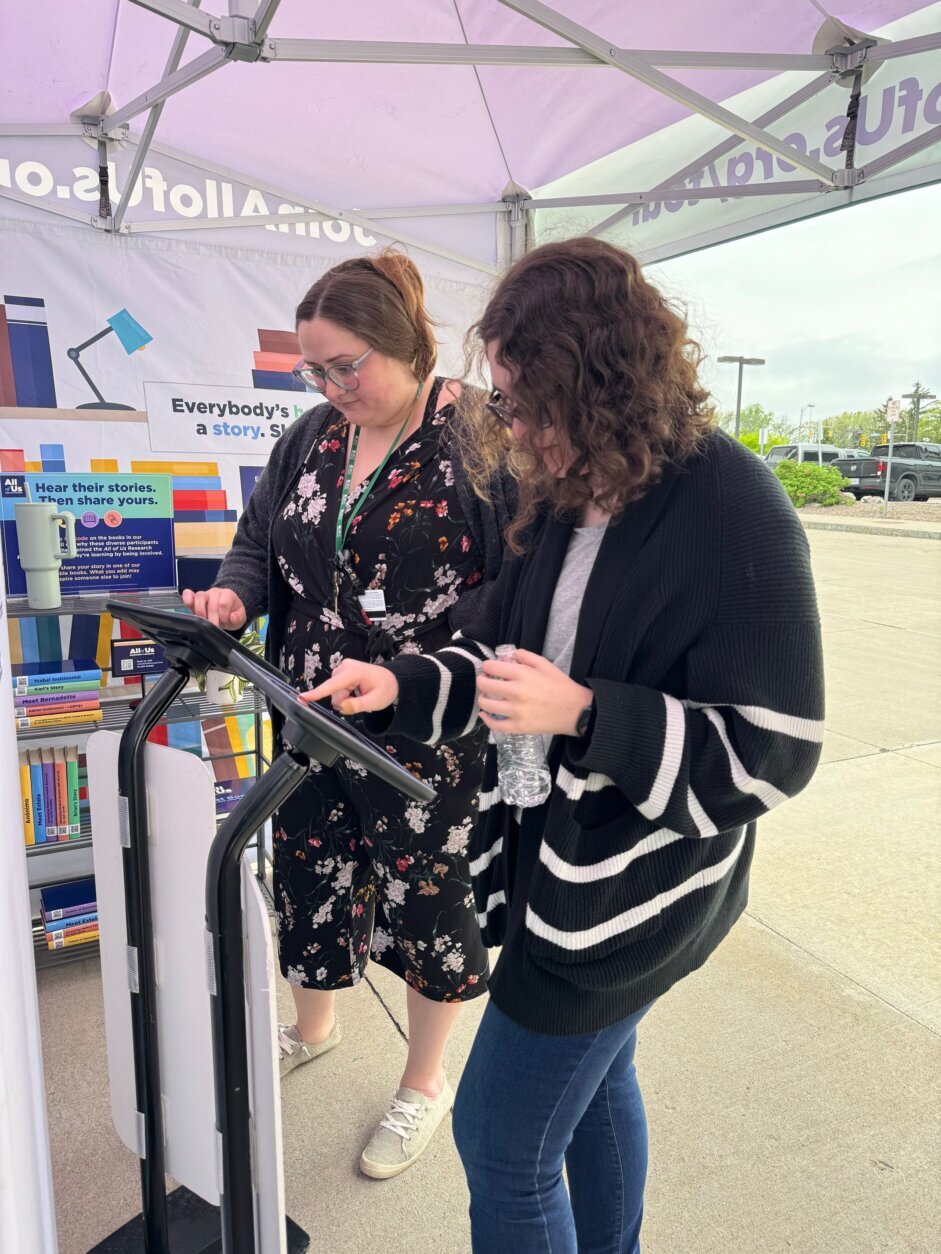
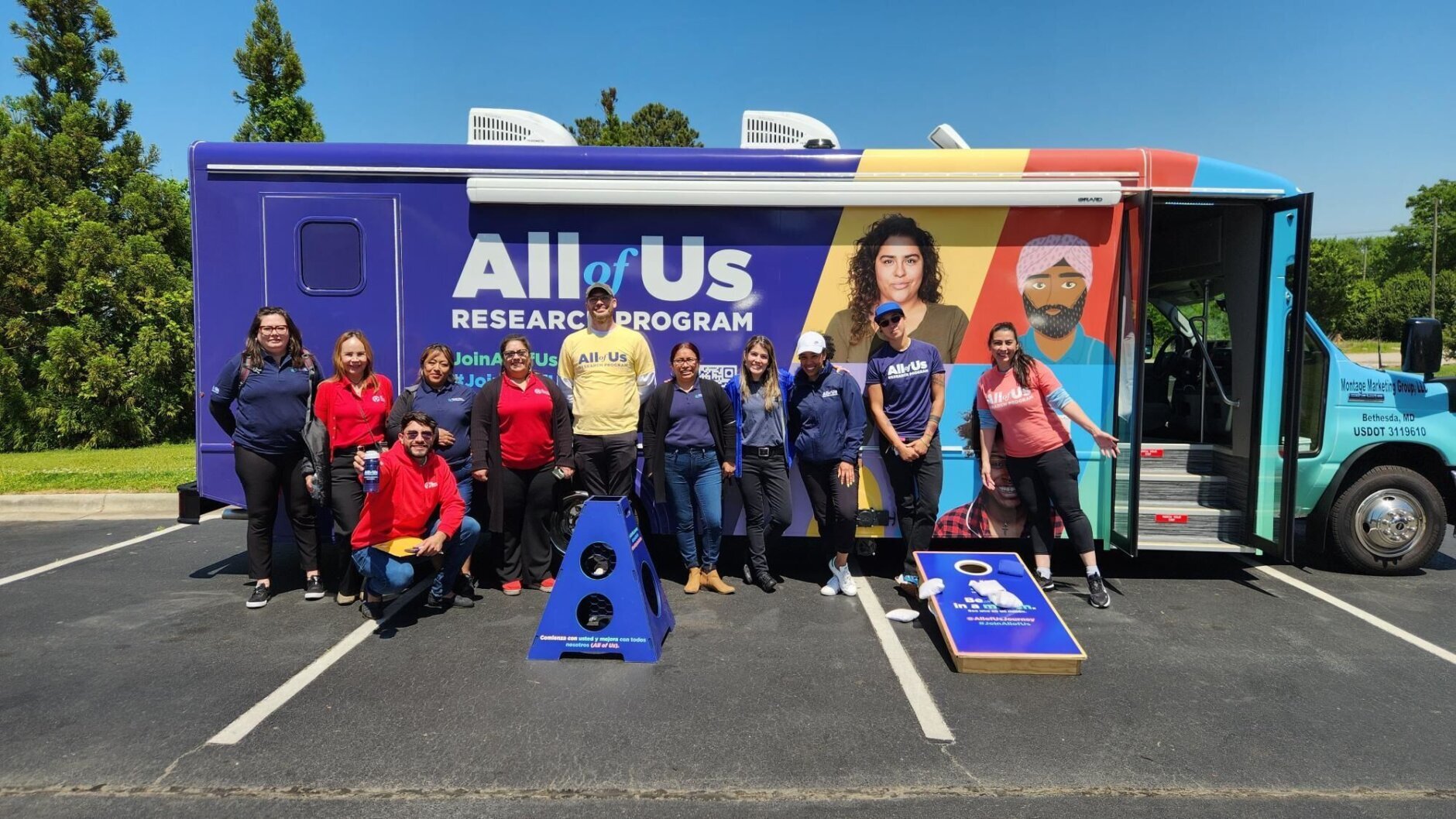
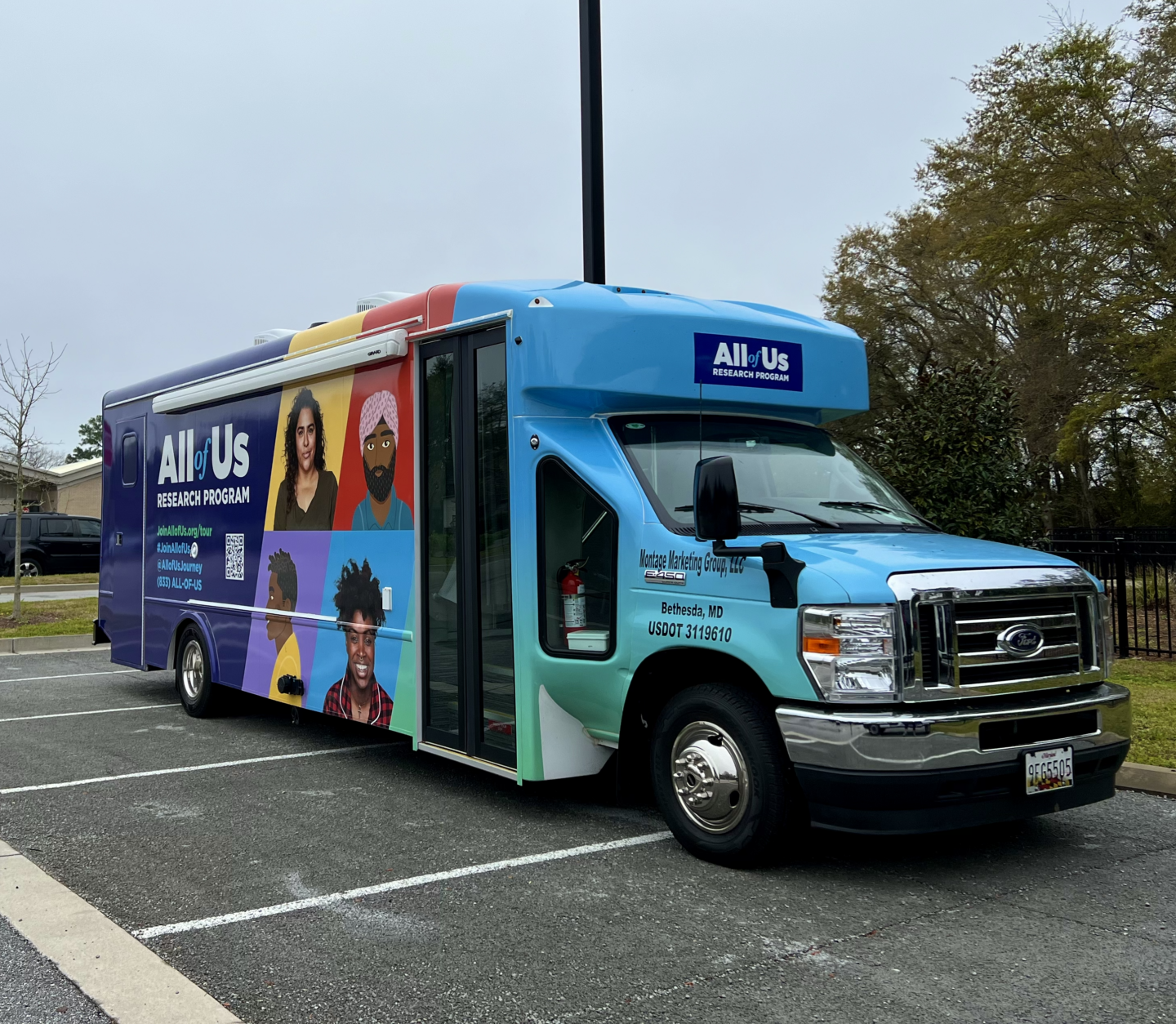
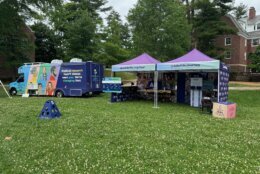
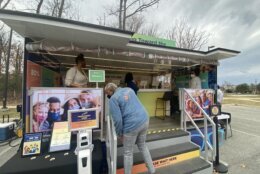
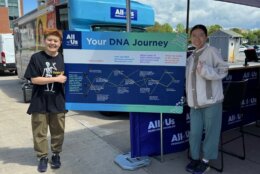
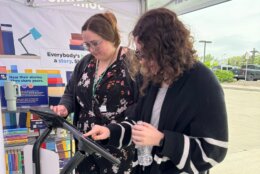
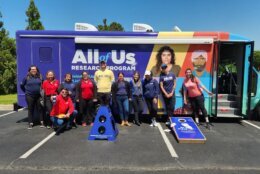
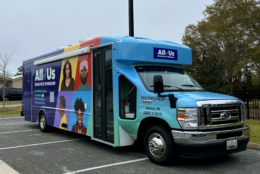
Historically, some groups of people have been left out of medical research, but a mobile exhibit that’s visiting the D.C. area this week aims to change that.
The National Institutes of Health launched the All of Us research program in 2018 to build a large, diverse database for researchers.
Dr. Minnkyong Lee, the program’s Deputy Chief Engagement Officer, said it aims to collect information about one million people who “reflect the true diversity of the United States and its territories.”
“With the data provided by participants who enroll and consent to the program, we want to create a diverse data set,” Lee said. “That includes data from biospecimens, social and lifestyle data collected through surveys, (and) wearable health data. All of these come together to create a broad picture of health for researchers to use.”
The doctor said that would lead to better health care for everyone by learning which treatments work best for people of different backgrounds or connecting people with the right clinical studies for their needs. According to NIH, more than 826,000 people have joined the program so far, and more than 80% of participants are from groups that have been underrepresented in health research.
Lee said representation matters, citing when she gave birth to her second child as an example.
“They gave me an overdose of morphine before my cesarean. I wasn’t able to hold my baby all day long the first day he was born. Morphine in Asian Americans is not studied very specifically, so that was kind of a side effect,” she said. “Precision medicine could have helped me, if that was available.”
The “All of Us Journey” exhibit will be at the Marian Fryer Town Plaza in downtown Wheaton, Maryland, from Aug. 6-9. It’s touring the country and features interactive activities, videos, games and quizzes.
“If you want to learn a little bit more about the program or precision medicine in general, we have hands-on activities that you can enjoy with your family,” Lee said.
All ages are welcome at the free educational exhibit, which is open to the public from 9 a.m. until 3 p.m.
Where you live affects your health. Lee said that’s why the mobile exhibit is traveling the country to engage people in their neighborhoods.
The program defines diversity not just by race or ethnicity, but also by geography, access to health care, age, sexual orientation and gender identity, disability status and education status. If you’re a part of a group that you feel has been underrepresented in medical research, Lee said you should enroll in the program.
“You won’t see immediate benefits going to yourself,” Lee said. “If you have kids or grandkids, it’s really coming out to help change the future of health care and biomedical research.”
More information about “All of Us” and its future events is online.
Get breaking news and daily headlines delivered to your email inbox by signing up here.
© 2024 WTOP. All Rights Reserved. This website is not intended for users located within the European Economic Area.


